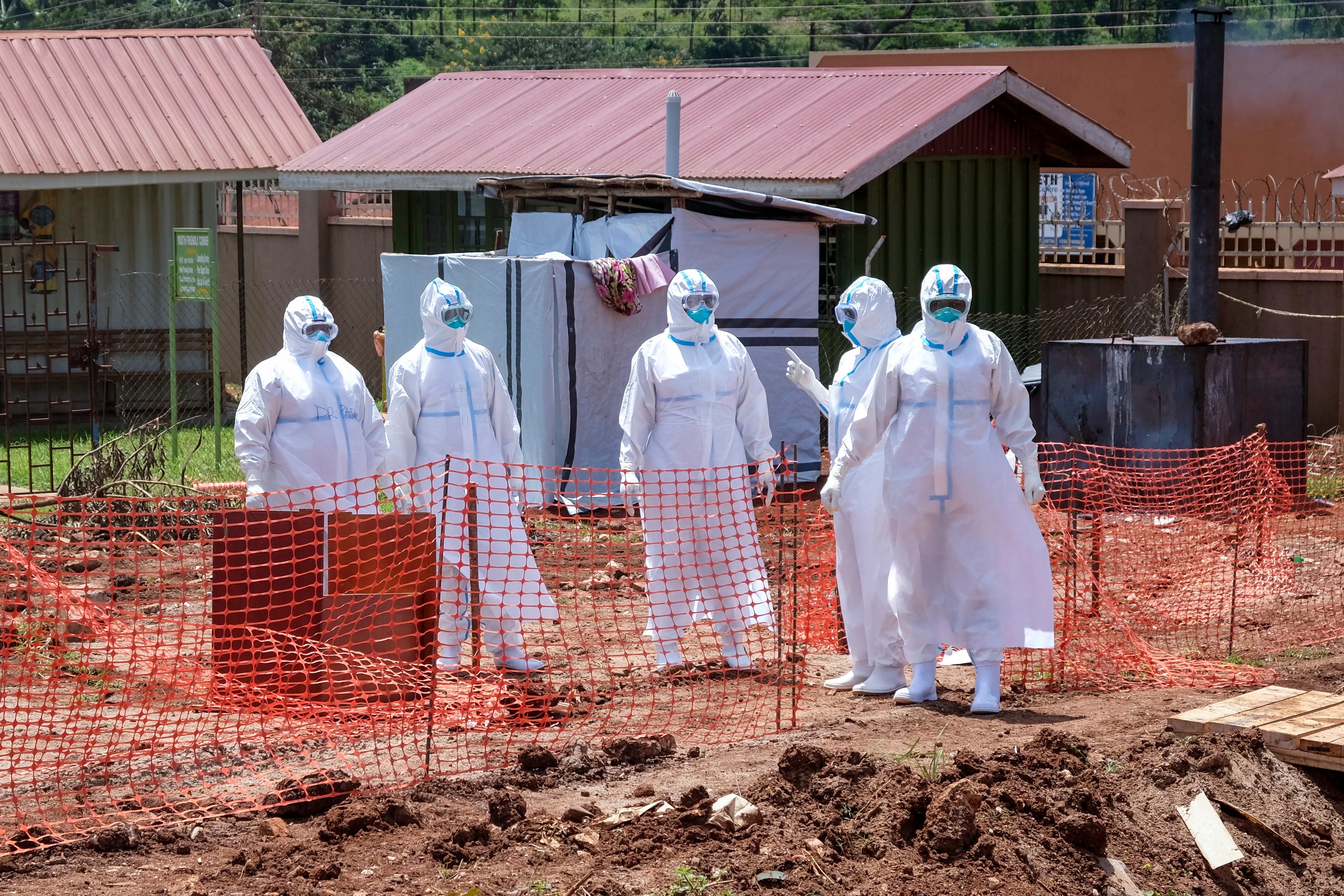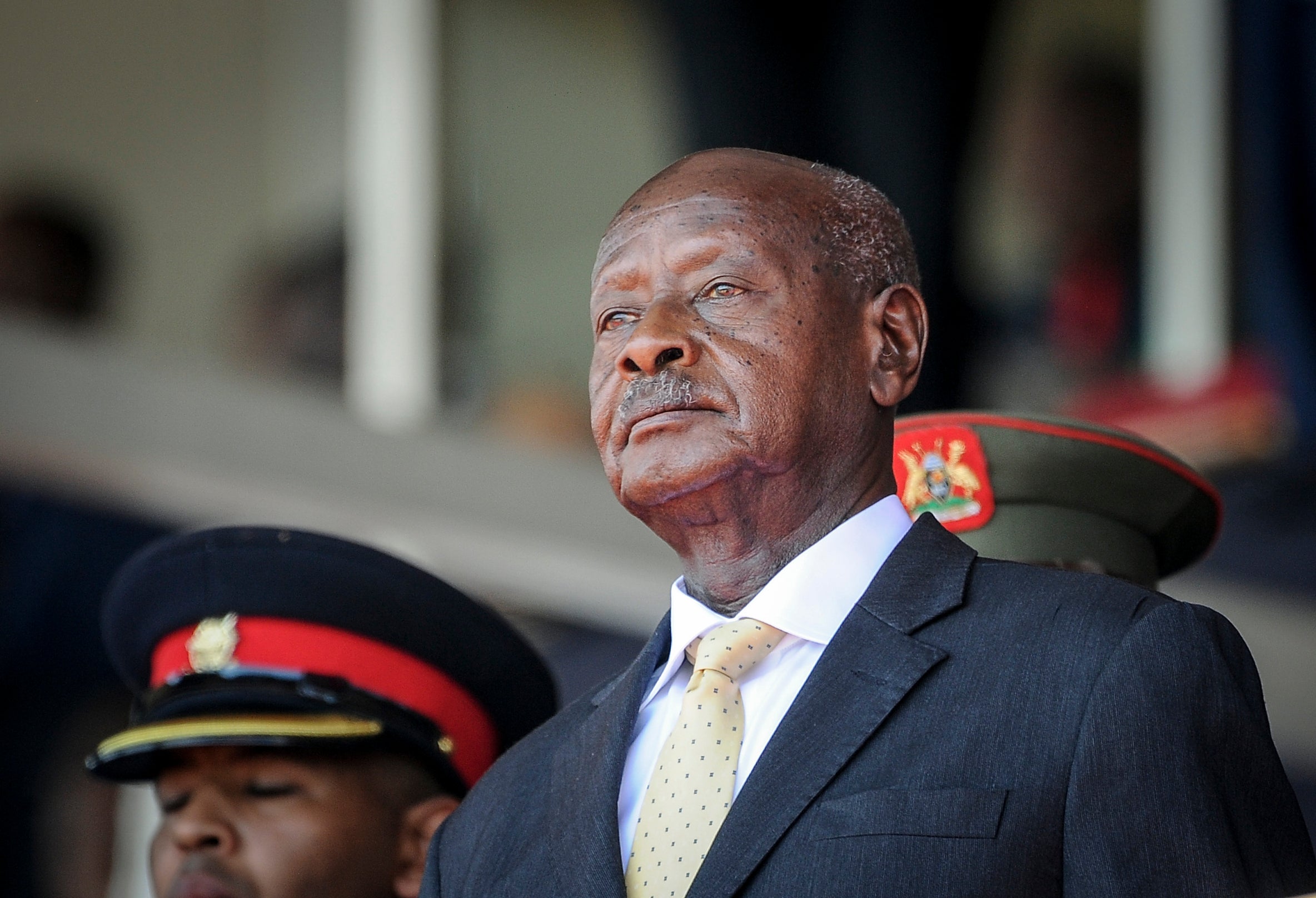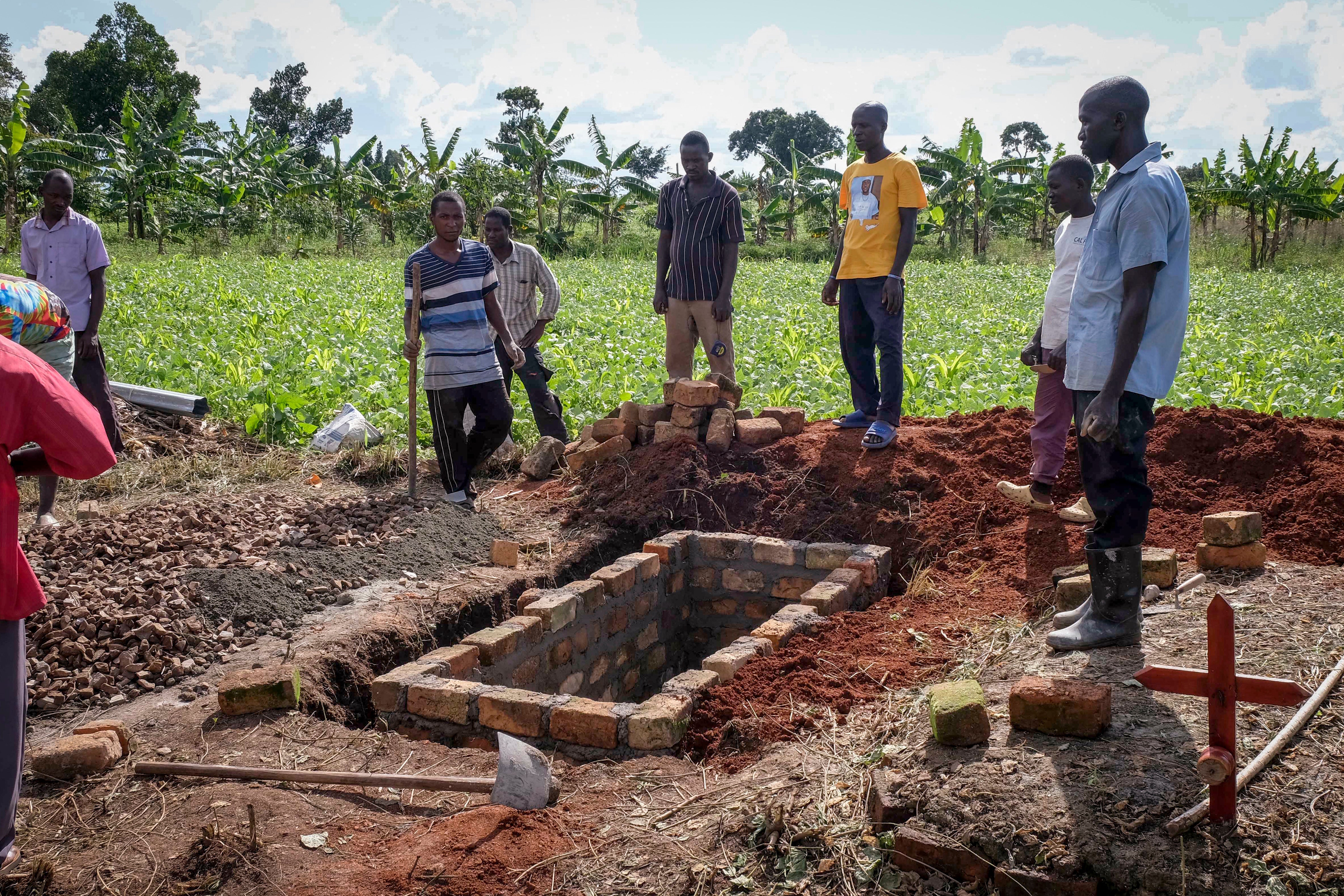Ebola: Uganda announces three-week lockdown and curfew in two areas
At least 19 people have died of Ebola while authorities had previously ruled out lockdowns

Uganda has imposed a three-week lockdown on two areas of the country affected by the spread of Ebola.
President Yoweri Museveni said on Saturday that the government was implementing an overnight curfew in Mubende and Kassanda, in central Uganda.
Nineteen people have died, he said, since the east African nation announced the outbreak on 20 September.
At least 58 cases of the viral disease have been recorded – and the number of cases and deaths could be higher.
Movement in and out of the two districts will be restricted for 21 days. All transport will be stopped except for cargo trucks.

Places of worship and entertainment venues will be among the buildings that will be forced to shut.
The two districts are the epicentre of the epidemic, Mr Museveni said in a televised national address.
“These are temporary measures to control the spread of Ebola. We should all cooperate with authorities so we bring this outbreak to an end in the shortest possible time,” he said.
Mr Museveni had previously ruled out lockdowns, saying Ebola was not an airborne virus so did not require the same measures as Covid-19.
He has already ordered police to arrest those who are suspected of having the virus and are refusing to isolate.
The first recorded death in the latest outbreak was a 24-year-old man in Mubende. Six of his relatives also died.

One death was also recorded in October in the capital Kampala. Health officials have said the city remains free of Ebola, and that the man who died had travelled there from Mubende.
This latest outbreak is from, what is referred to as, the Sudan strain of the virus – for which there is no approved vaccine.
The Zaire strain, which killed 11,000 people in an outbreak across West Africa from 2013-2016, can be vaccinated against.
Ebola spreads through direct contact with bodily fluids or contaminated items. Symptoms include vomiting, diarrhoea and internal or external bleeding in some cases.
Although it has no vaccine, the World Health Organisation (WHO) has previously said the Sudan strain is less transmissible and has shown a lower fatality rate in previous outbreaks than Ebola Zaire.
Earlier this week, World Health Organisation chief Tedros Adhanom Ghebreyesus said a clinical trial of two vaccines to combat the Sudan strain of Ebola could start within weeks “pending regulatory and other approvals from the Ugandan government”.
In a virtual address to a meeting of Africa regional health officials in Kampala, he said: “Our primary focus now is to rapidly control and contain this outbreak to protect neighbouring districts as well as neighbouring countries.”
Join our commenting forum
Join thought-provoking conversations, follow other Independent readers and see their replies
Comments

Bookmark popover
Removed from bookmarks